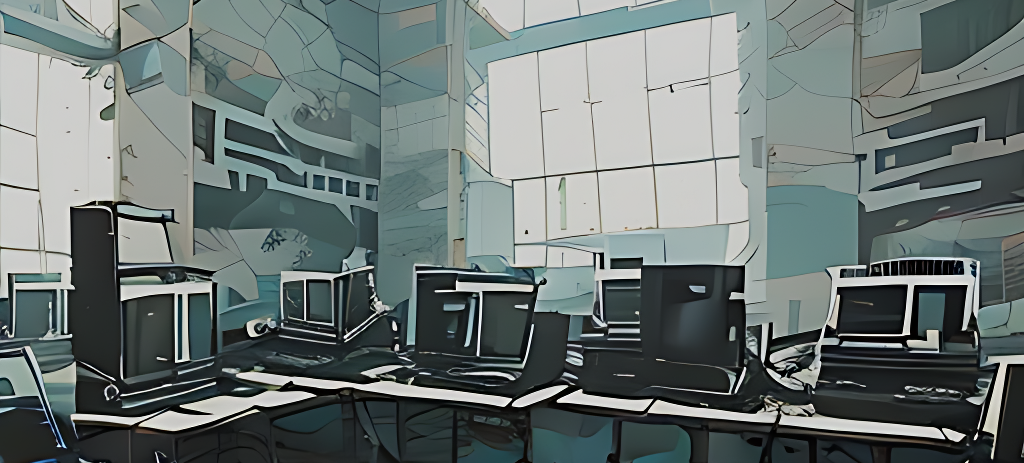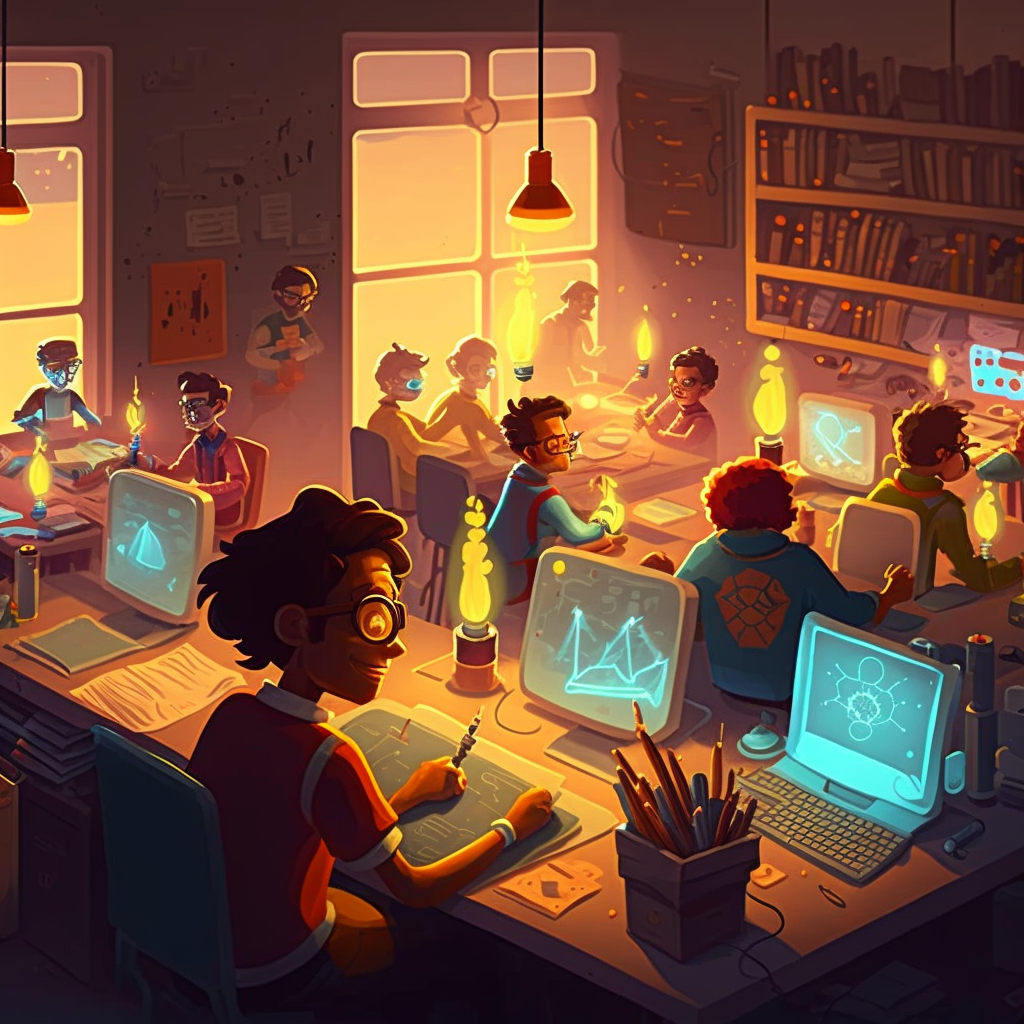In April 2020 I realized that the future of school was going to be pretty difficult and in response attempted to develop an XR classroom. However it failed during testing due to technical issues and lack of interest. Three years later, the challenges facing America’s school system have only increased, and technological solutions have proven largely ineffective

This is because attempts to improve education solely through technology are doomed to fail. iPads, for example, cannot replace a teacher’s living wage or the adequate support of educators.
Many argue that we must focus on improving the school system, working with local governments to prioritize what is important for students. However, I believe that while this may improve things temporarily and locally, the system is ultimately not salvageable. Negative feedback loops within the system, such as No Child Left Behind and schools funded by property taxes, make it difficult or impossible to make meaningful progress.
To fix education, we need a wholesale reconfiguring of societal priorities and community structure. How can we improve education if it’s the most chronically underfunded resource we have?
I understand that many of you reading this may already be aware of these issues and have tried to make changes. Instead of repeating these points, I would like to propose a solution through the world of my video game – Exosky.

Exosky is a “metagame”; it takes place in a theoretical future world that through the existence of the game will (hopefully) be created. If the original Star Trek was a video game, it would also be a “metagame”. Every article in the Metamurmerations series takes place in this world or on the path leading to it.

In the world of Exosky, there are global schools that operate as a hybrid of remote and in-person classes, with a special focus on creating communities of students. As the situation for the working class worsened, forward looking communities and parents worked with entrepreneurs to create virtual schools that crossed city limits to share resources between geographic locals rather than administrative ones.
At first, it was simple networks, piggy-backing off of libraries and makerspaces. Students still went to traditional classes, though quality, consistency and attendance began to truly suffer as social cohesion broke down, tax revenue dropped and teachers left the field for better paying, less stressful jobs.
As some districts were able to keep their institutions afloat, the towns they resided in became hot targets for immigration from other regions and property prices became unaffordable. To stem the tide, these schools started to work with these resource-sharing networks to give valuable education no matter where people lived. If parents could live in a low-cost area but still get the education of a high-cost area, the pressure on property prices could at least be somewhat alleviated. Tax revenue could be more focused on providing good wages for quality teachers and less on maintaining admin overhead and building maintenance.

By the time of Exosky schools look very different. They have fewer classrooms; the focus instead is on maintaining equipment that can be shared by a group. Instead of a history class, you have a shop class and instead of a social studies room you have an in-person class on conflict resolution. Your classmates might not just be from your local area but could be from another country half a world away. In this manner we can encourage global understanding and peace through shared learning.
That’s not to say these classes are gone; they’re just different. Some of them have a teacher that might be half a world away and they are a quick one hour lesson taught through video conferencing or XR. Others might focus on doing real-world exploration individually and bringing the results to class once a week.
Every student has a school or library facility near enough to them where they can get to it by walking (since in Exosky’s world, cities and towns are based on what is walkable). Each of these facilities provides a place for students to meet with others from their class in their local area, or from other classes that might have different schedules. There are some teachers here and it is not unheard of for students to go on a sort of educational pilgrimage to some other city so they can learn from a teacher in person.

By breaking down the block of an 8-hour class day and spreading it into a full week of mixed classes, student attention is more engaged and they spend less time in the classroom. In my world, teachers are supported via a UBI system, but in today’s world this can be achieved with a combination of tax revenue and low-cost subscription paid by the parents or students themselves. We are left with a more equitable school system that can provide a valuable education no matter the geographic location, while still retaining the important in-person social connections that people need.
The goals of the new system are thus;
- Pay teachers a wage commiserate with the value they bring to society.
- Educate students in such a way that they are taught the world as it is and as it was, with a minimal national bias.
- Educate students in all the practical concerns of the day, such as taxes, wood repair, identity protection, etc.
- Provide these services with as little cost as possible to the largest amount of students as possible, while still satisfying goal #1.
- Encourage students to form strong relationships with their peers both in-person and over the Internet.
- Transform education from an institution where students are taught what is known to a resource where new minds are actively encouraged to participate in solving the issues of the day.
My next two articles will deal with distributed manufacturing and government in the world of Exosky and who knows – maybe our own world will follow the same path? I hope to see you there!
This article is remarkable. I will share this with my local community school and all the teachers I know. I am a father of two kids, 12 and 14 years old; education will change. Jordan, you are providing us with a different point of view with a very respectful humans values.
Really great article Jordan! I have a couple of points that would possibly interfere with your ideals – politics is one. Right now school boards and teachers are being virtually assaulted by groups of people insisting their way is the only way – by banning books, protesting school boards, demonizing teachers and students of all shapes and sizes, it’s really getting bad out there. Even in Maine we are seeing this in the more rural areas as the heated rhetoric rises up from the so called red states who are institutionalizing these trends.
Until we get those things under control, movement on such a grand scale as your ideas are promoting will never become reality. The politics are just too hot right now and the whole system is suffering. (Which incidentally is why it needs something like what you propose to be fleshed out).
Anyway – I enjoyed your article and look forward to hearing more about your EXOSKY world building and how it relates in the real world virtually.
Hey Chuck, thanks for commenting!
Would love to hear you expand more on this if you can;
“The politics are just too hot right now and the whole system is suffering. (Which incidentally is why it needs something like what you propose to be fleshed out).”